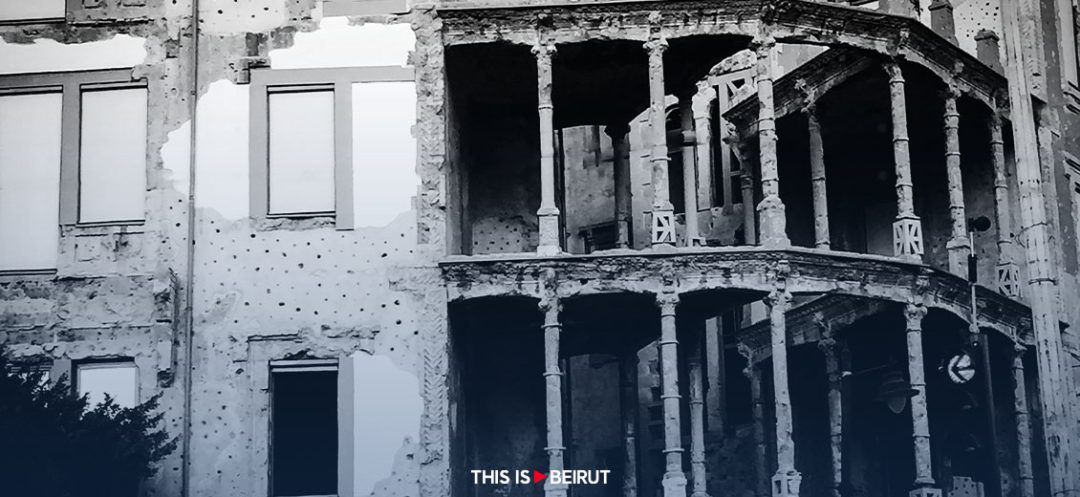
Machiavelli said it, yet any sailboat owner will confirm it: “One can initiate a war (or set sail) at will, but concluding it whenever desired is not always within reach,” nor is returning to port.
The Lebanese Civil War, ignited on April 13, 1975, evidently lingers unresolved. Following the incidents in Tayouneh (October 14, 2021) and Kahaleh (August 9, 2023), the recent death of Pascal Sleiman, the coordinator of the Lebanese Forces (LF) in the Jbeil region, is further proof. Without conscious party leadership and clear directives from representative Christian parties, certain areas of the country were on the verge of violence.
Marwan Chahine, a Franco-Lebanese author poised to publish an investigative book on April 13, 1975, through Belfond in September, notes that “many Lebanese youth, regardless of their background, continue to live immersed in the mythology of war and the culture of heroism, lacking any hindsight.”
Chahine, whose book was the product of more than a decade of arduous investigation, clearly recalls that some of those who were involved in the events of April 13, 1975, sought “to settle old scores dating back to the inter-Lebanese confrontations of... 1958.” “Is it then normal, he wonders, to leave the chabeb or youth with no memory beyond that of their familial home or community? Is it healthy to allow them to develop a taste for checkpoints and feel entitled to engage in warfare?”
“Between the Worst and the Lesser Evil”
In politics, as Machiavelli says elsewhere, “the choice is rarely between good and evil, but between the worst and the lesser evil.” Certainly, it is natural for Salim Sayegh, Vice President of the Kataeb Party, to immediately think about the term “Lebanese resistance” when April 13 is mentioned. However, if we want to avoid the confusion and stagnation triggered by fragmented historical narratives, shouldn't we confront and transcend the conflicting consciousness surrounding our civil war and strive towards a vision of our common historic vocation?
Preserving memory is one of the National Education's great missions. In France, the armistice of the First World War (1914–1918), signed between the Allies and Germany, is commemorated on November 11, with its history taught in schools and high schools.
As part of an educational project, students are actively engaged in ceremonies paying tribute to the combatants and victims of the war. This activity serves as a reminder that the memory of the two major global conflicts contributes to building a Europe founded on tolerance and peace.
It is Lebanon’s responsibility to recognize and choose what defines its heritage, to reconcile seemingly contradictory narratives, and to transmit them with respect for a well-assimilated pluralism. Today, as we navigate a new situation, a critical examination of our past is indispensable.
The article “Two negations do not make a nation,” which led to Georges Naccache's imprisonment, was written in 1948. It underscores the mismanagement of the country since its inception. Undoubtedly, Lebanon faced the hazards of history upon gaining independence, particularly the seismic event known as the partition of Palestine. But must the political class languish in infantilism, relying on a quintet to shape our future?
These remarks are general. Numerous personalities draw comparisons between the breakdown of the current political authority and the state of affairs before 1975. The bombardment of southern Lebanon, which undoubtedly contributes to this breakdown, must cease as swiftly as possible to prevent further disintegration and collective impunity.
In his book “La vérité, même si ma voix tremble” (The truth, even if my voice trembles), Assaad Chaftari, a repentant warrior and former right-hand man of ex-Lebanese Forces leader Elie Hobeika, expresses astonishment. He questions why, despite having a date to commemorate the outbreak of the 1975 war, the Lebanese people lack one to celebrate its end.
A long-winded work of reflection and memory is urgently required to restore trust among the Lebanese people. We must put an end to the pattern of nearly sliding into civil war with each serious incident, only averting it at the eleventh hour.
Read more



Comments